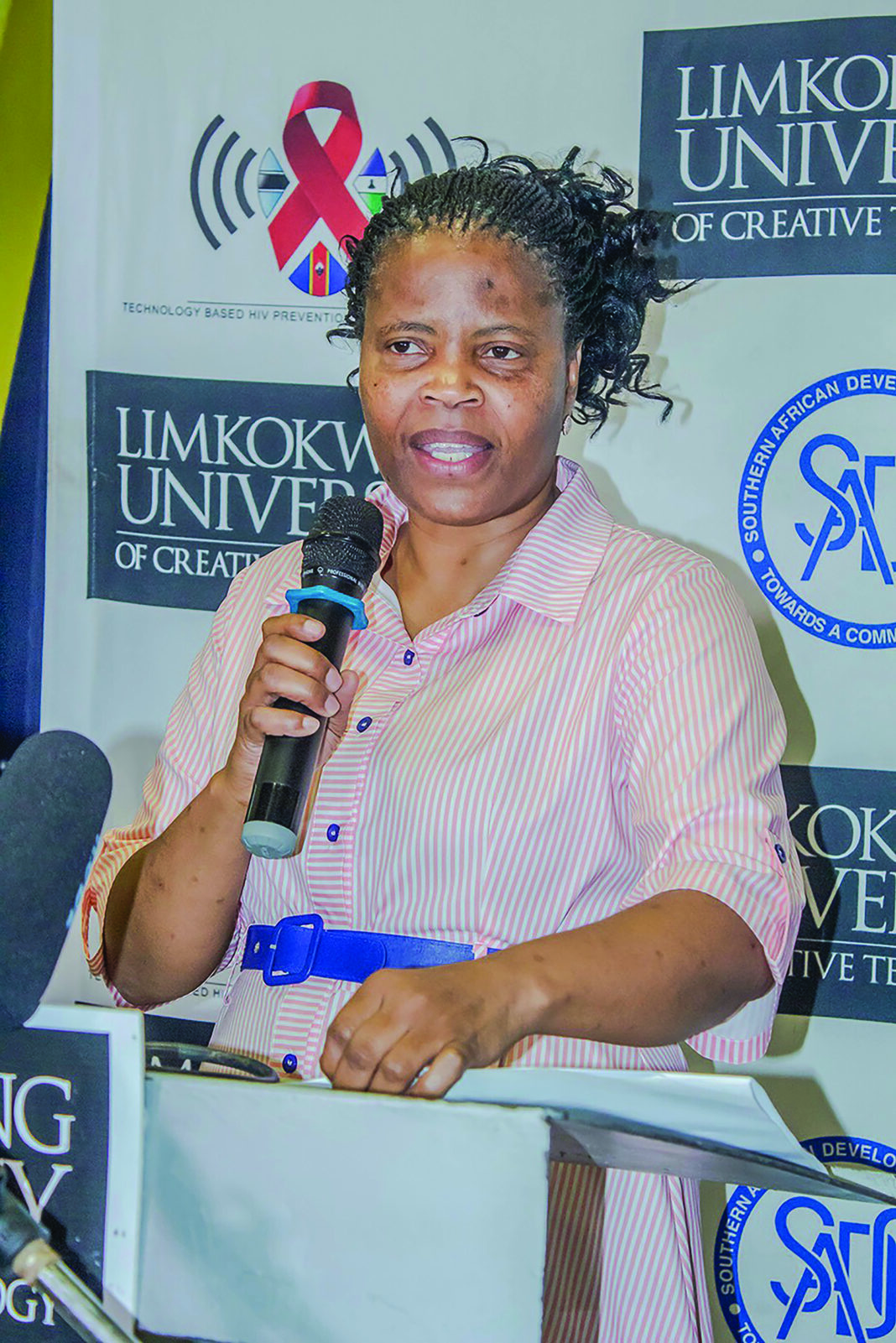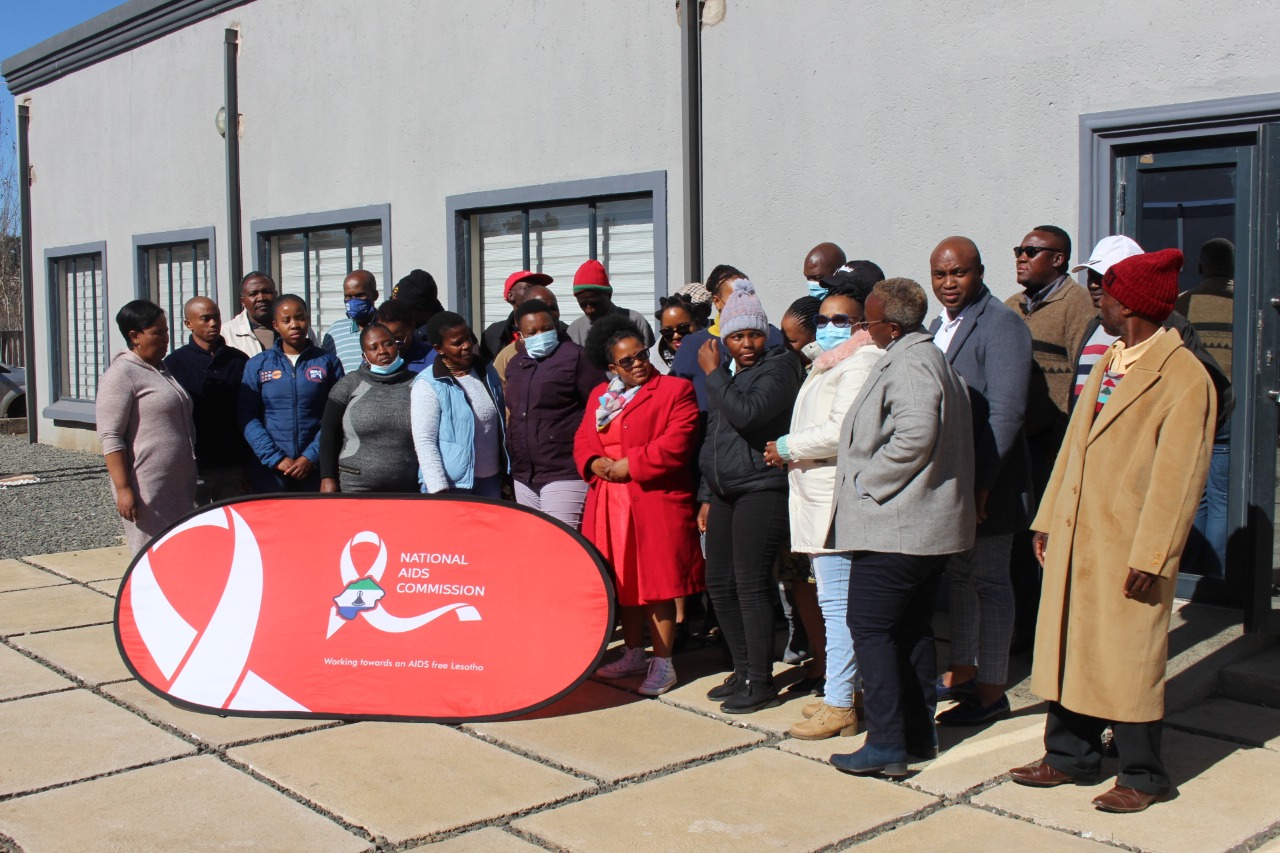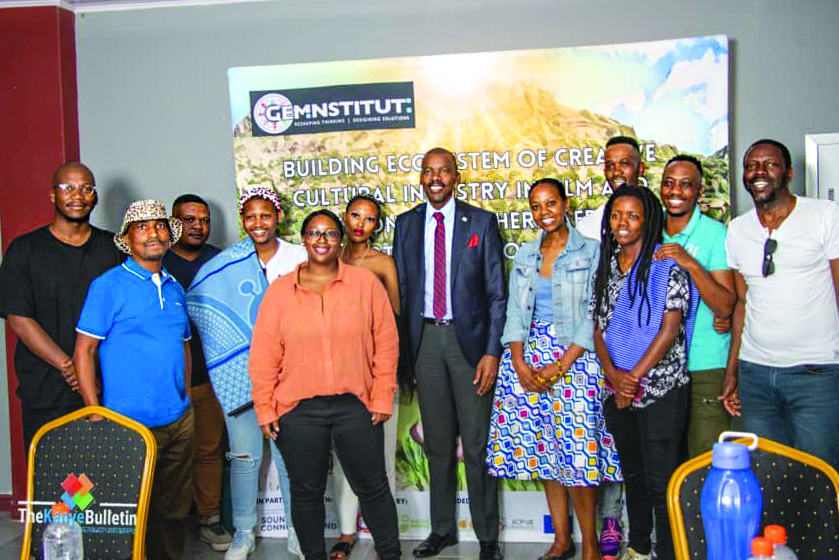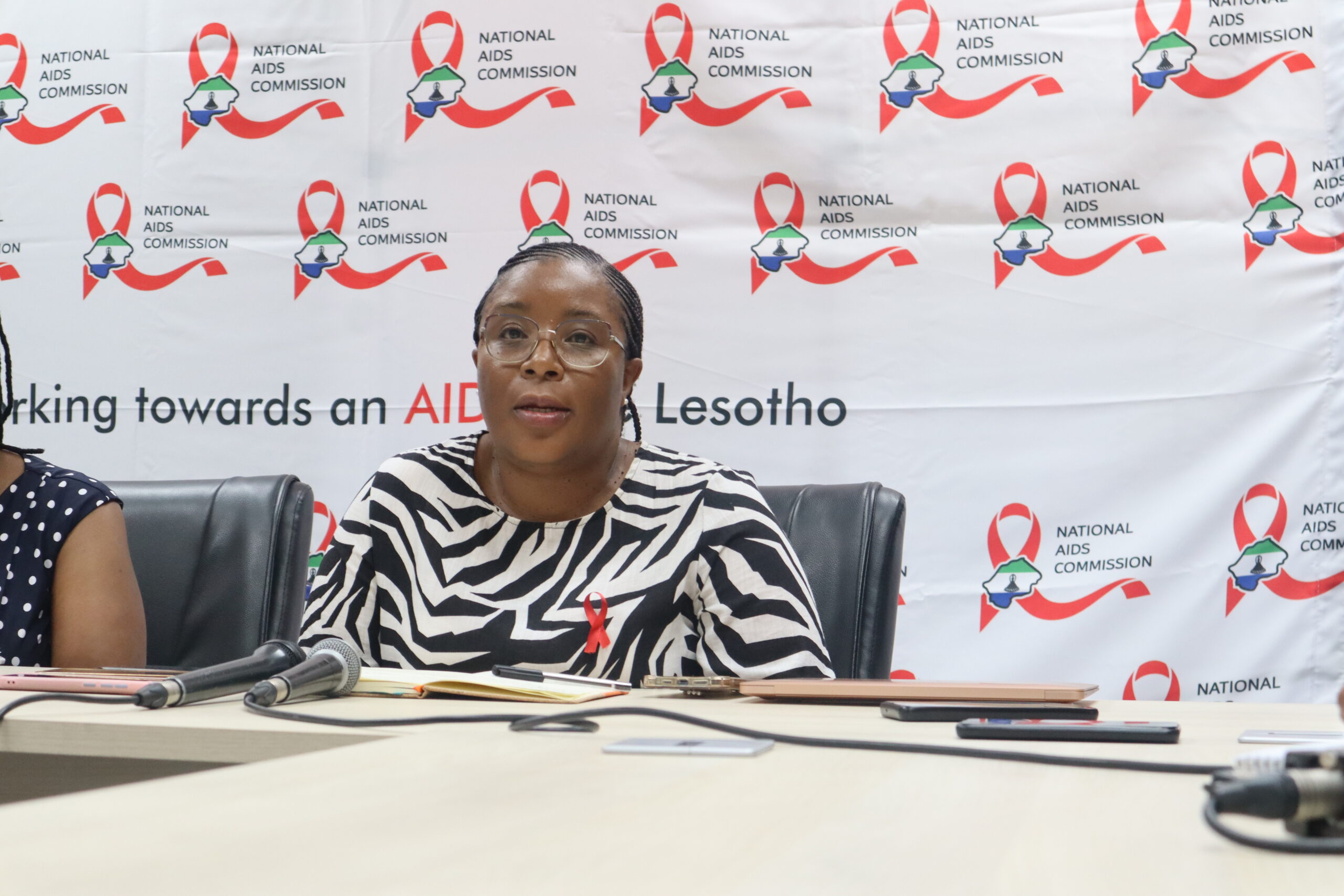Ntsoaki Motaung
A ground-breaking collaboration involving the National Aids Commission (NAC), Limkokwing University of Technology (LUCT), and the Southern African Development Community (SADC) marked the inception of the first-ever Youth HIV Prevention Bootcamp held at the LUCT campus last week.
LUCT, with campuses in Lesotho, Botswana, and Eswatini, spearheads this initiative, with coordination by the respective NACs of the respective countries.
The event drew 250 youths aged 15 to 24 from across the nation, aiming to acquaint them with technology-driven HIV prevention methods to combat new infections.
The Technology-Based HIV Prevention Program for Youth (THPPY), as outlined by the Programs Manager for NAC, Tiisetso Piet, focuses on crafting technology-driven messages for HIV prevention.
Emphasising the youth’s preference for technology over manual approaches, Piet said the program aims to engage and reduce new infections through messages created by the youth, and shared on social media platforms.
“The messages will be created by youth to be shared through technology on social media platforms to make it easy for the targeted receivers “youth” to get them and engage while the aim is to reduce new infections amongst youth using them,” she said.
Piet highlighted that the program extends beyond HIV prevention, addressing Gender-Based Violence (GBV) issues, and recognising their role in HIV infections.
The program was launched by the Former Minister of Health Semano Sakatle in November 2021.
Lethola Mafisa, Equality, and Rights for All Adviser at UNAIDS, highlighted the concerning trend of new infections among young people in Lesotho.
Notably, women being four times more likely to be newly infected than their male counterparts, lead this demographic in prevalence and new infections.
“It does not matter whether we are talking about the prevalence or new infections, women are leading,” Mafisa said.
Lesotho records approximately 5,000 new infections annually, with 80 percent in the 15-34 age group.
Mafisa stressed the imperative of consulting the affected youth, given the lack of understanding of their situation and dynamics.
“It would not be proper for us as program people to continue working without consulting the affected people because we do not even know their situation, or dynamics and do not understand anything,” he said.
Summary
- A ground-breaking collaboration involving the National Aids Commission (NAC), Limkokwing University of Technology (LUCT), and the Southern African Development Community (SADC) marked the inception of the first-ever Youth HIV Prevention Bootcamp held at the LUCT campus last week.
- Emphasising the youth’s preference for technology over manual approaches, Piet said the program aims to engage and reduce new infections through messages created by the youth, and shared on social media platforms.
- “The messages will be created by youth to be shared through technology on social media platforms to make it easy for the targeted receivers “youth” to get them and engage while the aim is to reduce new infections amongst youth using them,” she said.

Your Trusted Source for News and Insights in Lesotho!
At Newsday Media, we are passionate about delivering accurate, timely, and engaging news and multimedia content to our diverse audience. Founded with the vision of revolutionizing the media landscape in Lesotho, we have grown into a leading hybrid media company that blends traditional journalism with innovative digital platforms.










